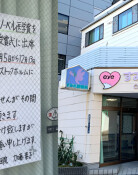Fixed Installment Savings Interest Rate Declines to Three Percent
Fixed Installment Savings Interest Rate Declines to Three Percent
Posted July. 28, 2004 21:54,
Director Chang (37), who works for chemical company A, went to the bank at the end of last month to open a one-year installment savings account, but sighed afterward as he learned the interest he would earn a year later.
Even if he saved one million won every month, by taking the subway to work and saving on his lunch money, he would be paid 216,000 won in interest in June next year, which is about 18,000 won interest per month.
The interest rate of installment savings, which is the most preferred method of saving money by salarymen, has fallen to three percent for the first time ever. Hence the future savings of the people have decreased, giving a negative impact to the recovery of spending.
According to the Bank of Korea report: Trends of Financial Institution Weighted Average Interest Rates presented on July 28, the banks average interest rate (based on new savings) of installment savings accounts in June was an annual 3.98 percent, which is 0.08 percent lower than last month and an all-time low.
If one opens a one-year installment savings account, saving one million won monthly, interest will amount to 216,015 won, after deducting taxes. That is 16,825 won lower than that of the 232,840 won of interest that could be earned if one opened a one-year installment savings account in June of last year when the average interest rate was 4.29 percent.
During June, the average interest rate of fixed savings accounts declined to 3.81 percent, or 0.02 percent, down from Mays 3.83 percent. If one opens a 100 million won account for a year, one can expect to earn 3.81 million won in interest. However, after deducting 628,650 won (a tax rate of 16.5 percent) for taxes, the net interest is 3,181,350 won or a monthly interest dividend of 265,112 won.
If Junes consumer price increase rate of 3.6 percent continues for a year, 3.6 million won worth in interest is needed when saving 100 million won for a year in order for the money to maintain the same value as it does today.
In all, when considering the price increase rate, the 100 million won savings account will devalue by 418,650 won, making the real interest rate 0.42 percent.
The reason why the interest rates for installment savings and fixed savings are decreasing is because money is pouring into banks since consumers and investors are not spending, and the banks do not have a place to invest the savings.
The Bank of Koreas Financial Statistic Department Deputy Director Park Seung-hwan analyzed, The real interest rate of savings accounts is now negative, diminishing the incomes of those living off savings accounts, and with the installment savings interest rate down, it will be difficult for salarymen to increase their assets, which in turn will shrink consumer spending and push capital towards short-term investment products.
Real interest rate is derived from deducting taxes from interest and then reflecting the effects of the consumer price increase rate. If the real interest rate is negative, it means that even after saving money for a period of time in a bank and earning interest, the actual value of the money has decreased when compared to the point when it was deposited.
Joong-Hyun Park sanjuck@donga.com
Headline News
- South Korea’s migrant population surpasses five percent
- U.S. acting ambassador affirms joint exercises with South Korea
- China and Japan escalate dispute over naval radar incident
- Uptempo claims D3 Seoul basketball championship convincingly
- Democratic Party pushes insurrection court despite opposition warnings







